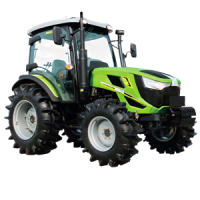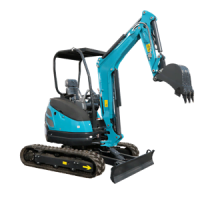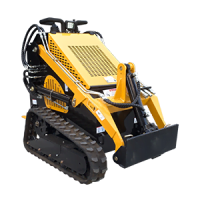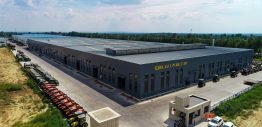Einführung
Farm tractors have long been the backbone of agriculture, powering the world’s food production. However, their indispensable role in farming has raised concerns about their environmental impact. As global awareness of sustainability grows, the need for greener alternatives to traditional farm tractors becomes increasingly evident. In this comprehensive article, we will explore the environmental challenges posed by farm tractors and delve into the emerging eco-friendly alternatives that promise to revolutionize agriculture.
Farm Tractors and Their Environmental Footprint
Emissionen und Luftqualität
One of the most significant environmental concerns associated with traditional farm tractors is their emissions. Diesel-powered tractors, in particular, release harmful pollutants into the air, contributing to air quality issues and climate change.
Soil Compaction
The weight and design of farm tractors can lead to soil compaction, which hampers soil health and water infiltration. Compacted soil can reduce crop yields and exacerbate erosion.
Kraftstoffverbrauch
Farm tractors are notorious for their high fuel consumption, which not only drives up operating costs for farmers but also increases their carbon footprint.
The Quest for Greener Alternatives
Elektrische Traktoren
Electric tractors have emerged as a promising alternative to diesel-powered machines. They produce zero emissions, significantly reducing air pollution and greenhouse gas emissions.
Hydrogen-Powered Tractors
Hydrogen fuel cell technology is being explored as a viable option for farm tractors. Hydrogen-powered tractors offer long-range capabilities and emit only water vapor as a byproduct.
Biofuels and Biodiesel
Biofuels derived from renewable sources, such as algae or plant-based feedstocks, are gaining traction as sustainable fuel options for tractors. Biodiesel, for instance, can reduce carbon emissions compared to traditional diesel.
Precision Agriculture and Environmental Stewardship
Präzisionslandwirtschaftstechniken
Precision agriculture, which leverages technology like GPS guidance and data analytics, can optimize tractor operations. This minimizes overlap and waste, reducing environmental impact.
Nachhaltige Praktiken
Farmers are increasingly adopting sustainable practices, such as no-till farming and cover cropping, which can mitigate the environmental impact of tractors.
Technological Advancements for Sustainable Tractors
Autonome Traktoren
Autonomous tractors have the potential to optimize farming operations by working continuously and precisely. This reduces the need for multiple passes through fields, minimizing soil compaction.
Telematics and Data Analytics
Tractors equipped with telematics systems and data analytics can provide valuable insights into soil health, allowing for more targeted and efficient use of resources.
Assessing the Environmental Benefits
Reducing Carbon Footprint
The shift towards greener alternatives and sustainable practices can significantly reduce the carbon footprint of farm tractors, aligning with global efforts to combat climate change.
Protecting Soil and Biodiversity
Implementing eco-friendly tractor technologies and practices can help preserve soil health and protect biodiversity, critical for sustainable agriculture.
FAQs
What are the main advantages of electric tractors for the environment?
Electric tractors offer zero emissions, reduced noise pollution, and decreased reliance on fossil fuels, making them a highly environmentally friendly option.
Are hydrogen-powered tractors a practical choice for farmers?
Hydrogen-powered tractors have potential advantages, but they face challenges in terms of infrastructure and cost. Their practicality depends on regional availability and affordability.
How can farmers transition to greener tractor options economically?
Government incentives, subsidies, and grants can help offset the higher initial costs of greener tractor options, making them more economically feasible for farmers.
What role can precision agriculture play in reducing the environmental impact of Traktoren?
Precision agriculture minimizes resource wastage by ensuring that tractors operate with maximum efficiency, reducing fuel consumption and environmental impact.
Can sustainable tractor practices benefit both the environment and crop yields?
Yes, sustainable tractor practices can enhance soil health, reduce emissions, and protect biodiversity, all while potentially increasing crop yields in the long term.
Fazit
The environmental impact of farm tractors has become a focal point in the agriculture industry. While traditional tractors have contributed to pollution, soil degradation, and high fuel consumption, the emergence of greener alternatives and sustainable practices offers hope for a more environmentally friendly future. Electric and hydrogen-powered tractors, precision agriculture, and conscientious farming practices are paving the way for a greener, more sustainable agriculture sector that can meet the demands of a growing global population while preserving the planet for future generations.







-1.png)